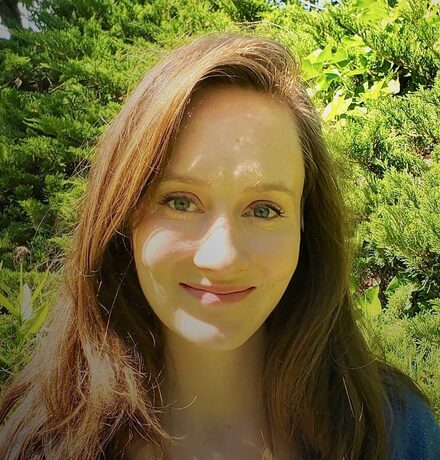I am a licensed psychologist who works with teens, young adults, parents, and schools. I have experience treating most mental health disorders and I specialize in therapy, parent coaching/parent-focused interventions, school consultation/support, and evaluation/assessment.
I have received 9 years of graduate training in psychology from the University of Washington and Seattle University. Since 2014 I have worked in outpatient clinics, Seattle Children’s Hospital, the University of Washington School Psychology Clinic, schools, and community mental health. I have also worked as a school psychologist and bring this experience to my clinical practice. I am a published author, trainer, and public speaker in the areas of trauma, chronic stress, and child development.
My clinical style is warm, active, goal and skills oriented, and humorous when appropriate. I use CBT, DBT skills, behavior interventions, relaxation, and self-compassion in my work. These interventions reflect my commitment to evidence-based practice. Depending on the age of the client, presenting concerns, and clinical indicators, I work closely with parents so that they gain a deeper understanding of their child’s challenges. My goal is to give parents frameworks and skills that they can call on in day-to-day life with their child. My evaluations are thorough and yield high-quality recommendations that target the unique needs of the child; parents have reported that these assessments are immensely useful in helping children thrive and providing a guide for other professionals.
Regardless of the intervention I am using, the client I am working with, or whether I am doing therapy or assessment, I abide by the following guiding principles:
- Adversity, while painful, can be growth promoting. Challenges are unavoidable and yet without them we would never know our strength, our capacity for empathy, or the insight and joy that is part of overcoming them. When we carve meaning from adversity, we plant the seeds of our own resilience.
- Avoidance and intolerance of uncertainty make everything worse. People will go to great lengths to avoid triggers or feelings of anxiety, and other negative emotions like shame. Ultimately the cure becomes worse than the disease and people find themselves living greatly circumscribed lives. If we give young people the frameworks, tools, and support to tolerate uncertainty, face their fears, and resist avoidance, we greatly increase the likelihood that they will lead rich and satisfying lives.
- Resilience is teachable. Resilience is not something that only a lucky few are born with. Rather, the capacity for resilience is a muscle that anyone can enhance through therapy, skill acquisition, and healthy relationships.
- When it comes to child development, we are playing a long game and it is not over till it’s over. The same quirks, traits, and challenges that can make someone particularly challenging as a child or teen are the same traits, quirks, and challenges that make them an interesting, successful, and capable adult. The willfulness and energy that can make children hard to parent is the same energy and tenacity that enables an adult to succeed in a competitive work environment. A sensitive and anxious child can become an uncommonly empathic and creative adult, much loved by their friends for their curiosity about the human experience. The point is, a holistic and bird’s eye view of human development can help parents manage anxiety and hold a balanced view of their child, while helping young people become more accepting of their perceived weaknesses.
- Stories matter. All people develop stories about who they are, how they got to be that way, and why they do what they do. Sometimes these stories are empowering, and other times they are not. I help all my clients develop stories that are kind, growth promoting, and fair to themselves and others. If you change someone’s story, you change their life.
I typically work with parents, children, teens, and young adults, and treat and evaluate the following:
- Anxiety
- Learning Disorders
- Executive function weaknesses
- ADHD
- High achievers and problems with stress management
- Perfectionism
- Shame and self-criticism
- OCD
- Depression
- Trauma and PTSD
- Memory dysfunction
- Suicide and self-harm
- General behavior challenges (acting out, negative attention seeking, challenges with routines, meltdowns)
Insurance: Does not participate with insurances
CREDENTIALS
I have 7 years of experience working with young people, parents, and schools. I have worked in a wide range of settings, including private outpatient practices, schools, Seattle Children’s Hospital, and in community mental health. In addition to this I am a published author, trainer, and public speaker.
EDUCATION
- Doctor of Philosophy-University of Washington, 2021
- Education Specialist-Seattle University, 2016
- Bachelor of Arts, Psychology, University of Washington, 2010
POSITIONS
- Doctoral Intern, Morrison Child and Family Services
- Doctoral Intern, MindSights
- Teaching Assistant, University of Washington
- Student Clinician, Seattle Children’s Hospital
- Student Clinician, Under One Roof
- Student Clinician, Brooks-Powers Group
- Speaker, University of Washington SMART CENTER
- School Psychologist, Des Moines Elementary
- School Psychology Intern, Seattle University
- School Psychology Practicum Student, Seattle University
- Research Assistant, Seattle University
- Project coordinator and Assistant, Seattle University
- Phone-worker and crisis intervention specialist, Crisis Line of King County

